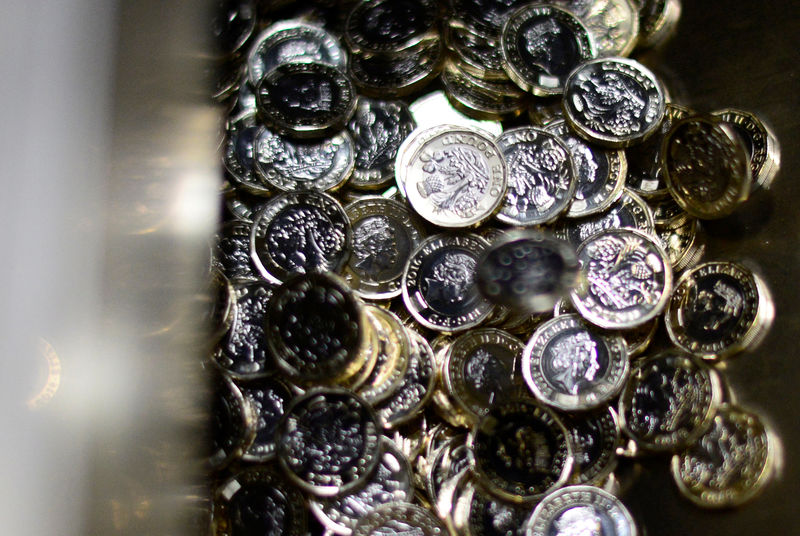Investing.com - The pound pulled back from the day’s highs against the dollar on Tuesday after data showing that UK inflation rose to its highest since September 2013 last month, underlining concerns over a squeeze on consumer spending.
GBP/USD initially touched session highs of 1.2957 before pulling back to 1.2889 by 09.05 GMT.
The Office for National Statistics said consumer prices rose by 2.7% in April compared to economists' expectation for a 2.6% annual increase.
Consumer prices rose 0.5% from a month earlier, the ONS said. Economists had expected inflation to match its March increase of 0.4%.
The latest increase in inflation was driven by a jump in airfares during the Easter holidays, which fell later this year. Rising prices for clothing, vehicle excise duty and electricity also contributed to the increase the ONS said.
The rate of inflation in the UK has accelerated in recent months as the weakening of the pound in the wake of last June’s Brexit vote drives up import costs.
Last week Bank of England Governor Mark Carney warned that living standards will tighten this year, with wages expected to fall in inflation-adjusted terms.
Core inflation, which strips out volatile factors like food and energy, rose to 2.4%, the most since March 2013 and above economists' expectations for it to rise to 2.2%.
Sterling was at one-month lows against the broadly stronger euro, with EUR/GBP up 0.6% at 1.2904.
Demand for the euro has been underpinned as investors shifted their attention back to the outlook for monetary policy as concerns over political risks receded after centrist Emmanuel Macron was elected France's president over far-right nationalist Marine Le Pen.
The euro was boosted after data confirming that euro zone gross domestic product grew by 0.5% in the first quarter.
Another report showed that Germany economic sentiment improved slightly in May, but came in weaker than forecast.
The U.S. dollar index, which measures the greenback’s strength against a trade-weighted basket of six major currencies, was down 0.33% at 98.48, pressured lower by the stronger euro.
The dollar was hit following reports that U.S. President Donald Trump shared sensitive intelligence obtained from a close U.S. ally with Russia's foreign minister about an Islamic State operation in a meeting last week.
The report added to concerns that Trump will be unable to successfully push through his economic stimulus program in the face of mounting controversies.
